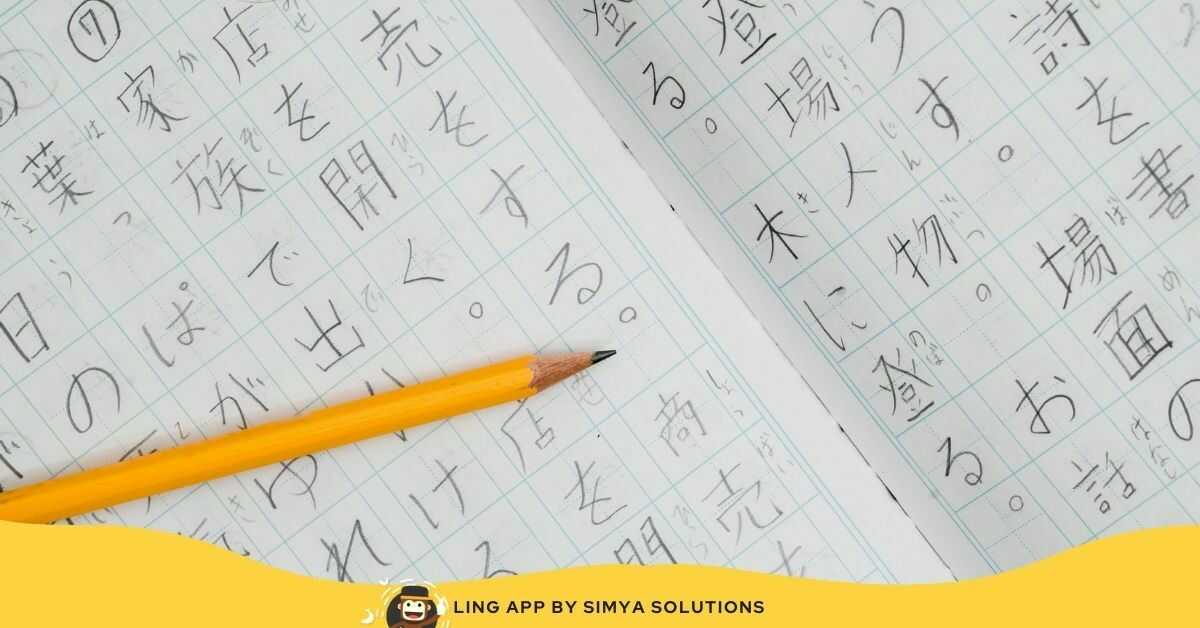Is Japanese hard to learn? Many of us have been drawn to the unique and exotic languages that can only be found in Asia. One Asian language that continues to have a horde of fans is the Japanese language.
With many schools offering lessons for this one, there seem to be some who are still left unsure of what to do next or whether they should consider learning this language at all. Japanese is indeed interesting, but there is also no denying that it is one of the most challenging languages in the world. Let’s learn more about Japanese in today’s post.

Is Japanese Hard To Learn?
Learning Japanese is never an easy endeavor to face. We cannot sugarcoat it and tell you that you can gain proficiency in this language within a short span of time because the truth is… learning Japanese takes time. In fact, even the FSI has added this to their category of exceptionally hard languages to learn, especially for total beginners in the Asian language. Hence, many of you are here asking, “is Japanese hard to learn?” Or does it have tons of Japanese grammar rules to memorize?
As adults, we have the tendency to devote most of our time to learning the intricate grammar of our target language, which is why many can see how different a simple sentence is in Japanese as compared to the English language.
On the flip side, there are a few points that are much easier when you are learning Japanese grammar. For instance, Japanese sentences are not as complicated as Spanish, which has tons of gender rules and distinctions between the tenses.
Here, you can expect only a few rules regarding Japanese forms of sentences (especially for verb tenses and nouns).
In terms of the alphabet, please note that the Japanese writing system officially has three sets of characters that are used in particular manners:
- Kanji
- Hiragana
- Katakana
These Japanese writing systems are usually presented in two ways: the most popular Western version (reading from left to right, top to bottom) and the traditional Japanese style (vertical columns reading from right to left). In schools, students are also taught the Latin alphabet, especially when they are learning English subjects.
While not all Asian languages are connected, a major part of the Japanese language is also based on Mandarin Chinese (the Kanji part), which is why most Asians may find it easier to learn this language. At present, most Japanese people consistently use Kanji as it is shorter and easier to understand (since it is also known as picture words). Therefore, if you are interested in taking the Japanese language proficiency test, you are also required to learn Kanji.
Another thing that makes studying Japanese a bit of a challenge is that the locals use a particular set of words and phrases depending on who they are speaking with. In short, there are vocabulary and word order you must use when speaking with a friend, a colleague, or your boss. There is also the concept of Keigo, or the use of honorific language in formal situations.
At the same time, you might need some getting used to in terms of the sounds when pronouncing a particular Japanese word. Many of the tourists often hear some Japanese people who can speak a few bits of English, but many can attest that it won’t be easy on the ears as the locals have a heavy accent. As for the Japanese words, you can also see tons of homonyms, which might make the wrong process of learning the language extra harder!

The Best Ways To Learn Japanese Language
Now that we know that Japanese is a difficult language to learn, we bet you are wondering whether it is still possible to learn this at all. The good news is that learning Japanese is not impossible, and you will only need to ensure consistency in your learning schedule to speak it in no time! Modern solutions such as learning Japanese through the best apps, or by watching Japanese shows and listening to Japanese music will also make learning a breeze. To learn, we highly recommend that you check out our most recommended steps below.
Memorize Japanese Words And Phrases Every Single Day
What is the best way to learn Japanese? Since we know that Japanese is extra hard, especially for English speakers, it is recommended that you focus on learning the basics of this new language. One example of the basic language feature you should focus on is the new vocabulary. By learning the meaning of a particular word and understanding how it can be used in a sentence (grammatically), you can start recognizing contextual meanings.
With a language learning app, you will make studying the alphabet and pronunciation a bit better to deal with. Download the Ling app on the Play Store or App Store and start from day one practicing the pronunciation while listening to sample conversations from native speakers.
Memorize The Hiragana And Katakana
In order to truly learn Japanese, it is essential that you understand the Japanese writing systems. Once you get to know what every character represents in relation to the Japanese sounds, you can start reading and familiarizing yourself with the common combinations of letters. According to the language learners, you can easily learn the hiragana and katakana within a day if you focus solely on them.
Aside from those two writing systems, you also need to learn how to write kanji. If you ever find yourself having to migrate to Japan or visiting it for quite a time, you will see that most of the major signs are written in Kanji (Chinese characters), which is why learning this is a must.
Start Learning Japanese With A Native Speaker
Learning a language is not just about memorization of foreign words. If you truly want to check on your skills and see whether you can use the words and expressions you learned in real-life situations, then you may consider joining a language exchange program.
According to the locals, a language exchange is a great way for you to discover more about Japanese culture and the meanings of words. As much as we do not want to admit it, some of the words have double meanings, which is why working with a native speaker can help you out tremendously.
Enroll In A Japanese Language School
For Japanese learners out there who want to take on a holistic approach to learning, you can consider signing up for a language learning school that offers Japanese. Through this, you can get access to native speakers or qualified Japanese language teachers who truly know how you can see progress in your skills.
Since they are qualified to teach, they can tailor-fit a program for you and create courses based on your language learning style, availability, and budget.
Teach Yourself For Atleast 10 Minutes Per Day
As we all know, enrolling in a Japanese school can be on the pricier end of the spectrum, and it will not be possible for those with no budget for it. However, if you are willing to go the extra mile and teach yourself, you can take advantage of free language learning tools like the Ling app where you can get lessons, quizzes, and additional resources all from one little device.
The Ling app has lessons for Japanese and over 60+ other languages, and that makes this app truly unique!
Wrapping Up
As we reach this part of the post, we hope that you were able to get to know why we think that Japanese is a hard language to learn. If you are interested in challenging yourself and learning this, we highly recommend that you check out the Ling app and start learning from there. By using the app every day, you can progress in your chosen language and prevent yourself from being demotivated or overwhelmed while learning.









































